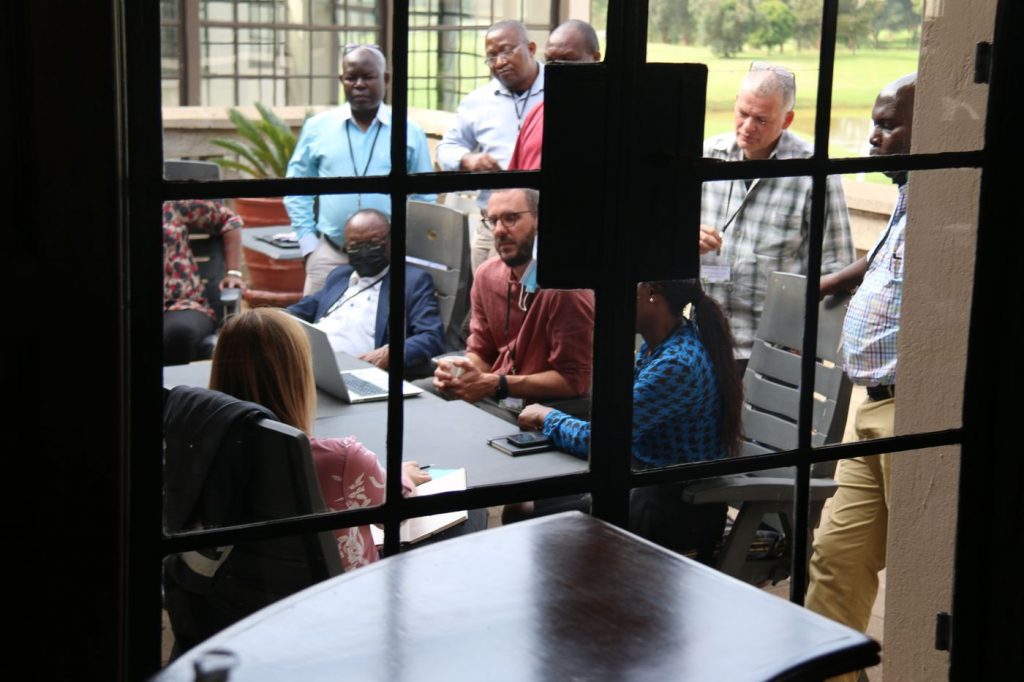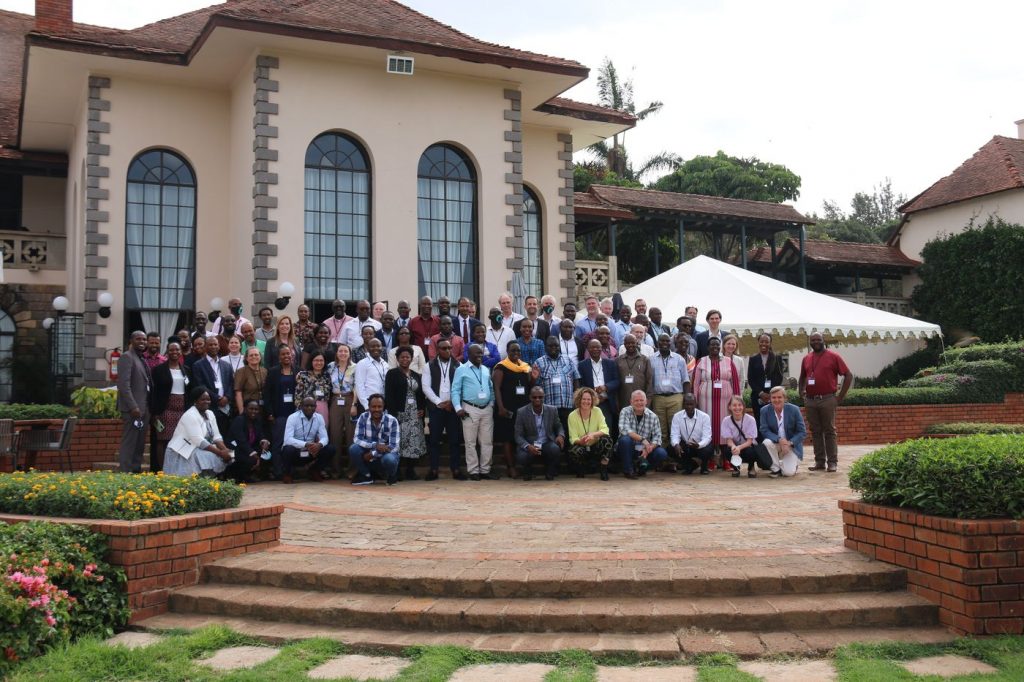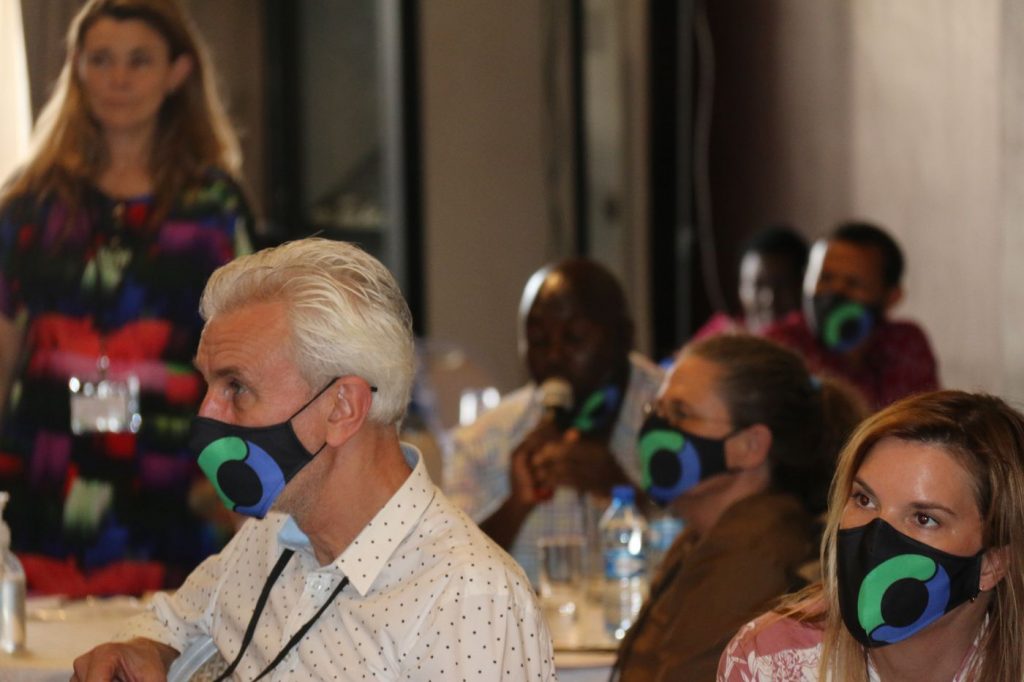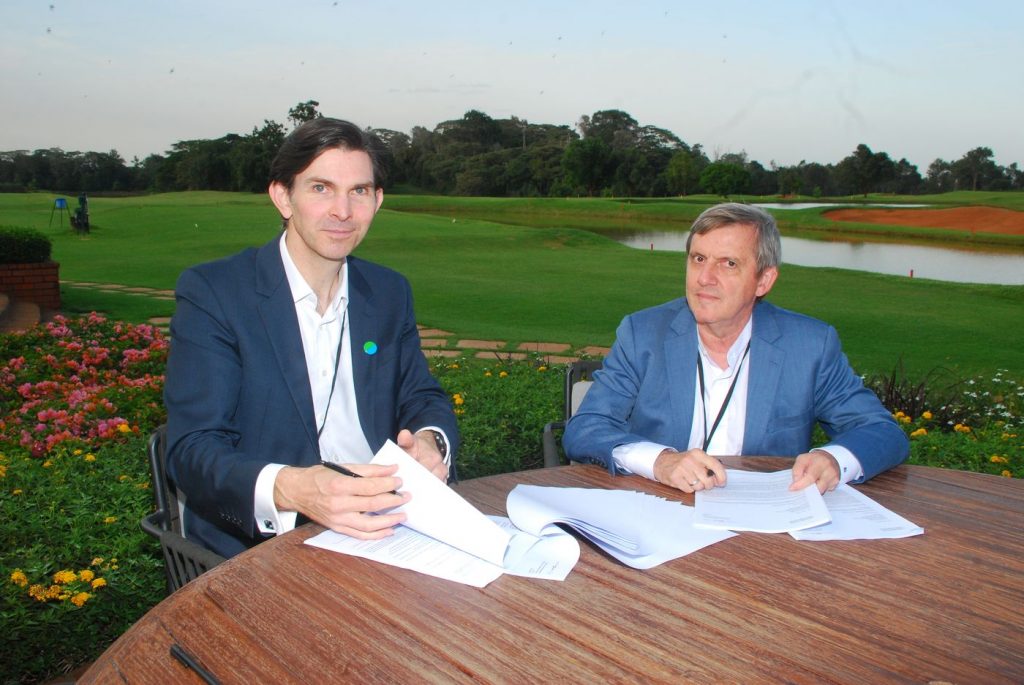We launched the world’s biggest privately funded, farmer-led land restoration programme in Kenya in May this year. The Global EverGreening Alliance’s Restore Africa Programme will restore 1.9 million hectares of land. That equates to supporting 1.5 million smallholder farming families across six African countries – Kenya, Ethiopia, Malawi, Tanzania, Uganda, and Zambia. The Programme will also significantly contribute to the African Forest Landscape Restoration Initiative (AFR100), which aims to bring at least 100 million hectares of degraded land under restoration by 2030.
Bringing together community representatives, NGOs, Government officials and representatives from Climate Asset Management, AFR100 and the Alliance, the week-long event held at Windsor Golf Hotel and Country Club kicked off with a lakeside cocktail party. Guests were welcomed by local dancers and it soon became apparent that few can resist the beat of an African drum. A number of speeches in which representatives confirmed their commitment to making the Programme a success added to the celebration.
This is a paradigm shift in the way we support land restoration with private sector funding to support the sort of scale the world’s most vulnerable communities really need, if we are ever going to overcome challenges of food insecurity, rural poverty, and rural change, we need large scale investment. We need to work with millions of farmers.
– Christopher Armitage, Chief Executive Officer of the Global EverGreening Alliance
According to Chris the programme will deliver enormous direct benefits to communities in terms of increasing productivity and profitability of the farming system, thus generating an enormous revenue stream over the next thirty years. “At least 45 percent of all carbon credits will be directly returned to communities, and that will provide reliable economic empowerment for a long time”.
The launch celebration was followed by a 3 day inception workshop where the overarching objective was to enhance collaboration and ensure a common understanding among the partners of the goal of the Restore Africa Program, its delivery mechanism, governance, and timelines to achieve the results articulated in each project document.
What makes this Programme unique is not only its scale and duration (as well as gender and social inclusion) but also the carbon component as a business model. Restore Africa has the potential to capture 90 million tons of CO2e by 2050, providing stakeholders with cost-effective investment options while empowering farmers and communities.
The week ended with a field trip to Kongasis and Kiambago in Nakuru County where attendees had the opportunity to see the work that Central Rift Farmer Managed Natural Regeneration Scale-Up Project (CRIFSUP) is doing there. CRIFSUP is the project responsible for implementation and management of FMNR activities and project sites in Kiambogoko. The project adopts a bottom-up approach, creating a “farmer-farmer” spread at community level to ensure sustainability of the FMNR movement. Local community leaders identify lead farmers or agents who are then trained on FMNR and mandated to reach out to ten or more other farmers who they then train in turn. This generates the grassroot adoption of the FMNR movement with on-site demonstrations.
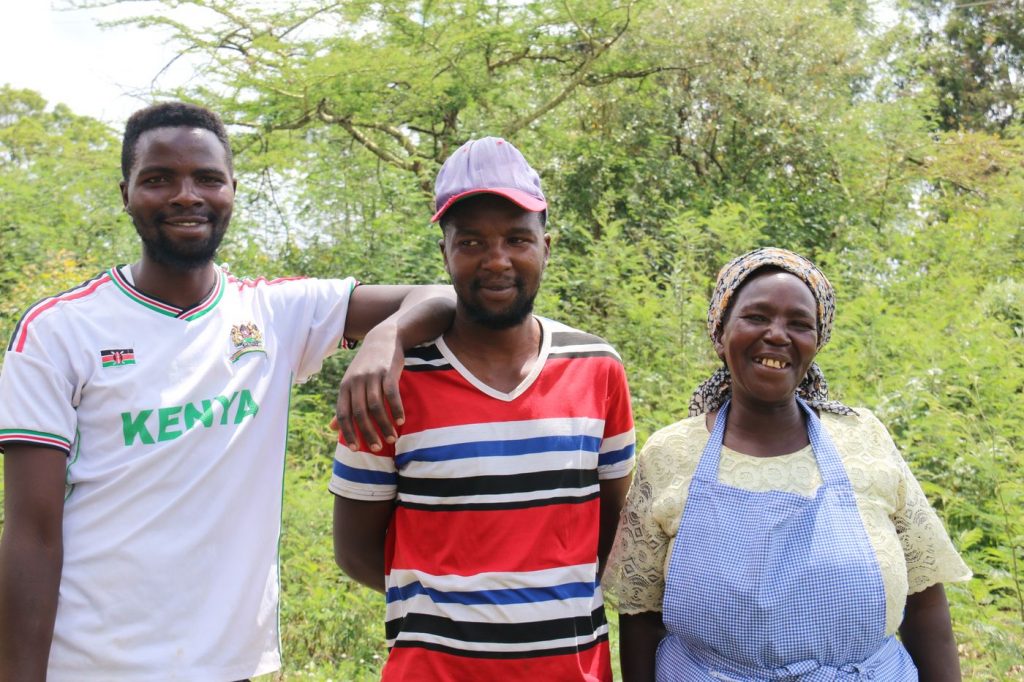
Learnt so much from Ruth about FMNR practices and how it’s changed her life and that of her sons and grandchildren. Thank you to World Vision for arranging this site visit and for the opportunity to see the impact FMNR has at a grassroots level.
Undoubtedly the highlight of the week was the announcement of the official signing of the Agreement between the Alliance and Climate Asset Management on the 24th of May 2022 by Chris Armitage and Christof Kutscher.
Climate Asset Management, the specialist Natural Capital Asset Manager, a partnership between HSBC Asset Management and Pollination, has confirmed its Nature-Based Carbon Strategy will be providing the first tranche of an estimated $USD150m financing package to commence the program in Kenya, Malawi, and Uganda.
Through inclusive and enduring partnerships, the Global Evergreening Alliance will be accelerating the adoption of the most effective and contextually appropriate nature based solutions across Africa, Australia, Latin America, South Asia and South East Asia.
Onwards!
